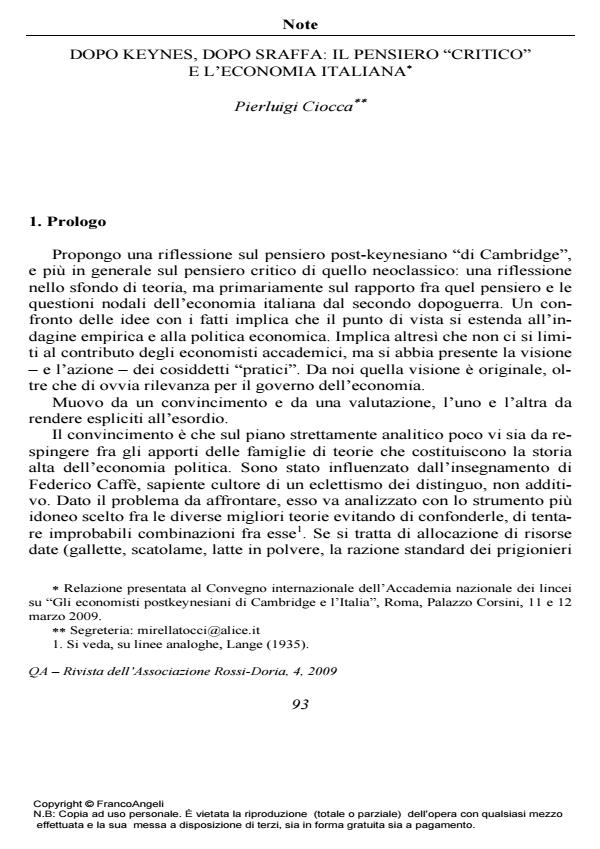Dopo Keynes, dopo Sraffa: il pensiero "critico" e l'economia italiana
Journal title QA Rivista dell’Associazione Rossi-Doria
Author/s Pierluigi Ciocca
Publishing Year 2009 Issue 2009/4
Language Italian Pages 29 P. 93-121 File size 608 KB
DOI 10.3280/QU2009-004004
DOI is like a bar code for intellectual property: to have more infomation
click here
Below, you can see the article first page
If you want to buy this article in PDF format, you can do it, following the instructions to buy download credits

FrancoAngeli is member of Publishers International Linking Association, Inc (PILA), a not-for-profit association which run the CrossRef service enabling links to and from online scholarly content.
Italian economic thought, from Francesco Ferrara on, has always been noteworthy for the wide range of its perspectives. This characteristic became even more marked in the second half of the twentieth century, thanks also to the "Cambridge- school" post-Keynesian strand, while the wider world saw the triumph, or at least the hegemony, of the marginalist approach, the neoclassical synthesis, and neoliberal ideology. The essay reviews the analyses and policy proposals produced by the post- Keynesian and, more generally, "heterodox" schools of thought in response to the crucial developments in the Italian economy since 1950. They represent an important contribution, significant even when Italy’s policy-makers failed to follow it up with concrete policy measures.
Keywords: History of economic thought, Economic growth, Income distribution, Economic systems
- The Italian Economists and the Crisis of the Nineteenseventies. The Rise and Fall of the "Conflict Paradigm" Piero Bini, in HISTORY OF ECONOMIC THOUGHT AND POLICY 1/2013 pp.73
DOI: 10.3280/SPE2013-001005
Pierluigi Ciocca, Dopo Keynes, dopo Sraffa: il pensiero "critico" e l'economia italiana in "QA Rivista dell’Associazione Rossi-Doria" 4/2009, pp 93-121, DOI: 10.3280/QU2009-004004